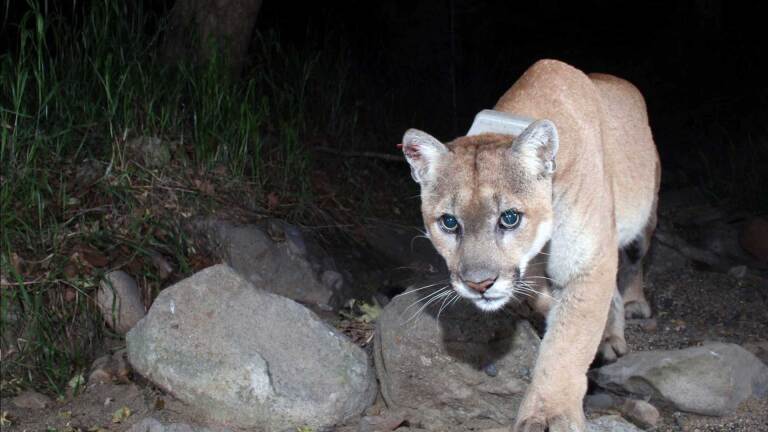Back to Show

Earth Focus
World's First All-Female Anti-Poaching Patrol Trying to Save South Africa's Rhinos
Rhino horn is more expensive than gold or platinum. It's thought to cure cancer and serve as a potent aphrodisiac. African rhinos are slaughtered in massive numbers to meet skyrocketing demand in East Asia. Some species are already extinct, while others are close to it. But new approaches in South Africa, including bullet recovery, DNA fingerprinting, and the deployment of the Black Mambas -- the world's first all-female anti-poaching patrol -- may make a critical difference in saving the rhinos from extinction. Jeff Barbee reports exclusively for "Earth Focus."
Click here to learn more about the issue from our correspondent.

Support Provided By

26:40
A look at the Peruvian government's Operation Mercury, a decisive action to shut down an entire town built around an illegal gold mine.

26:39
South Africa faces a stark reality as the continent’s largest greenhouse gas emitter.

26:39
In-depth profiles of four young environmentalists: Alexandria Villaseñor in California, Carl Smith in Alaska, Ayakha Melithafa in South Africa and Litokne Kabua in the Marshall Islands.

26:40
Entire aquatic ecosystems are beginning to collapse.

26:30
Solar power is changing lives in unexpected places.

26:40
The realities of milk production are forcing dairy communities across the globe to rethink the dairy production process.

26:04
This episode explores lumber poaching in the forests of Brazil and Oregon, where citizens and scientists are working together to combat the illegal lumber trade.

24:40
The popular demand for avocados is having a devastating impact on a drought-stricken community in Chile.

25:52
This episode of "Earth Focus" examines how the worldwide demand for oil and gas is impacting the communities that supply it.

24:28
Los Angeles is one of the biggest biodiversity hotspots in the world, despite its smog, urban sprawl and snarling freeways.

25:44
Communities and innovators all over the world are creating new sustainable food sources that are resilient to climate change and growing populations.

25:44
Anticipating future water needs, two regions on opposite sides of the world turn to technology for answers.










